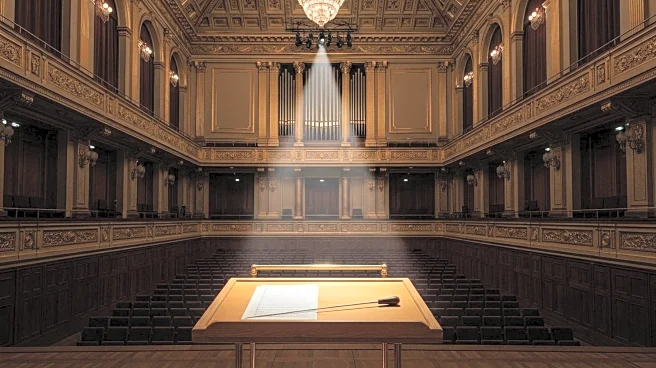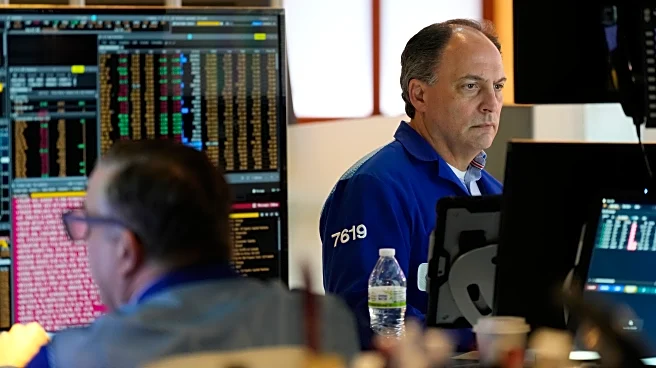What's Happening?
The Chicago Symphony Orchestra (CSO) recently hosted a concert featuring a dynamic program led by conductor Daniela Candillari. The performance included a mix of familiar and new works, such as Samuel Barber's 'Adagio for Strings' and Giovanni Battista Pergolesi's 'Stabat Mater,' which had not been performed at the CSO since the 1980s. The program also introduced two new compositions: Carlos Simon's 'Fate Now Conquers' and Thea Musgrave's 'Piccolo Play,' the latter featuring CSO's piccolo player Jennifer Gunn. Candillari, known for her work with the Opera Theatre of Saint Louis, brought her expertise in contemporary music to the CSO, marking a shift in the orchestra's programming strategy to include more living composers.
Why It's Important?
This concert represents a significant shift in the CSO's approach to programming, as it aims to incorporate more contemporary works into its repertoire. This change could attract a broader audience and provide a platform for living composers, potentially revitalizing interest in orchestral music. The inclusion of new works alongside classical pieces offers a fresh experience for concertgoers and highlights the versatility and adaptability of the orchestra. This strategy may also influence other orchestras to adopt similar programming, promoting the evolution of classical music in the U.S.
What's Next?
The CSO's decision to include more contemporary works in its programming is expected to continue throughout the season, with 16 new works planned, although only one is a premiere. This approach may lead to increased engagement with audiences and provide opportunities for emerging composers. The success of this strategy could encourage other orchestras to follow suit, potentially leading to a broader acceptance and appreciation of contemporary classical music.
Beyond the Headlines
The CSO's pivot towards contemporary music raises questions about the future of classical music programming. By embracing new compositions, the orchestra is challenging traditional norms and potentially reshaping audience expectations. This move could foster a more inclusive and diverse musical landscape, encouraging innovation and creativity within the classical music community.










